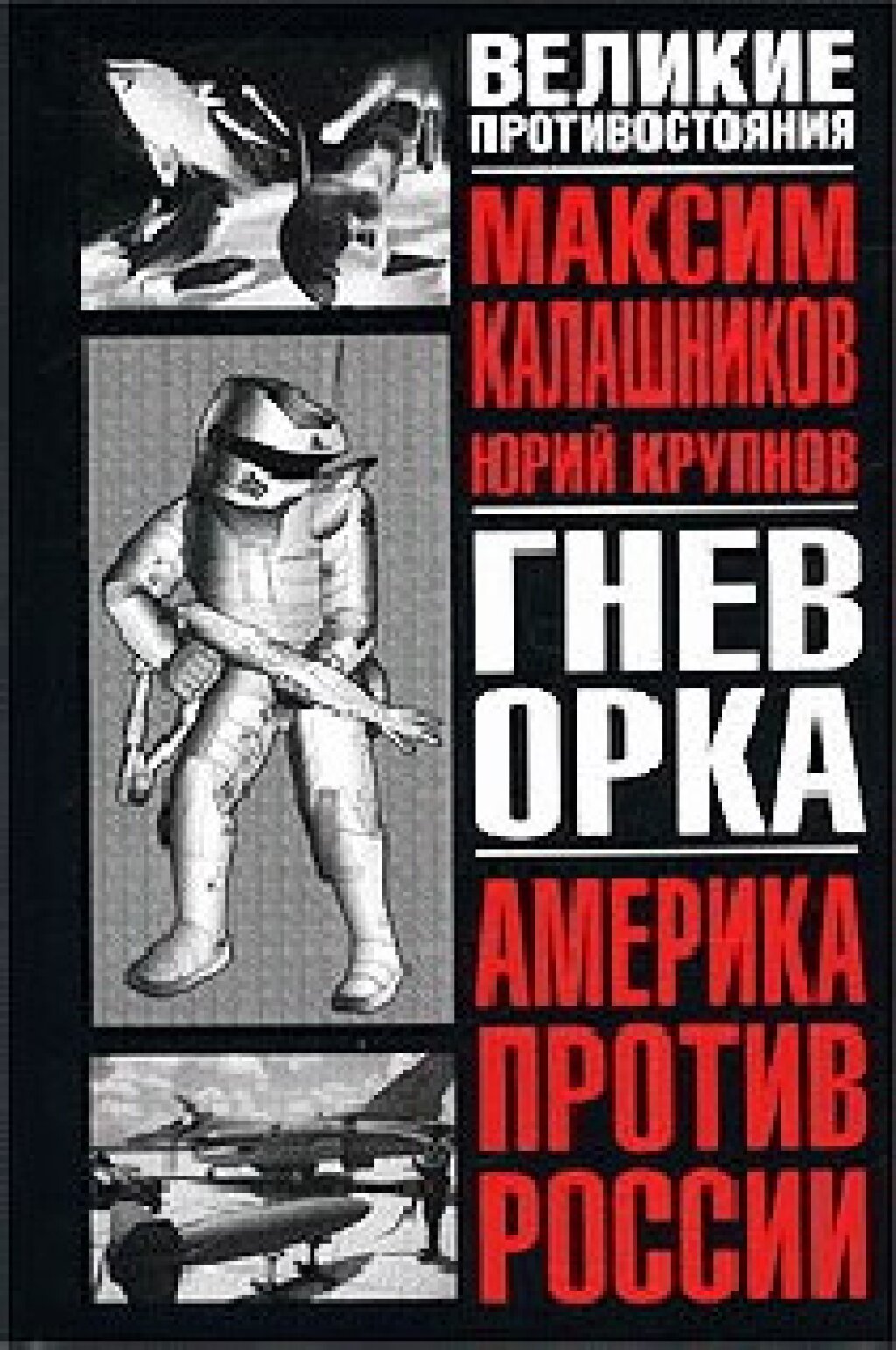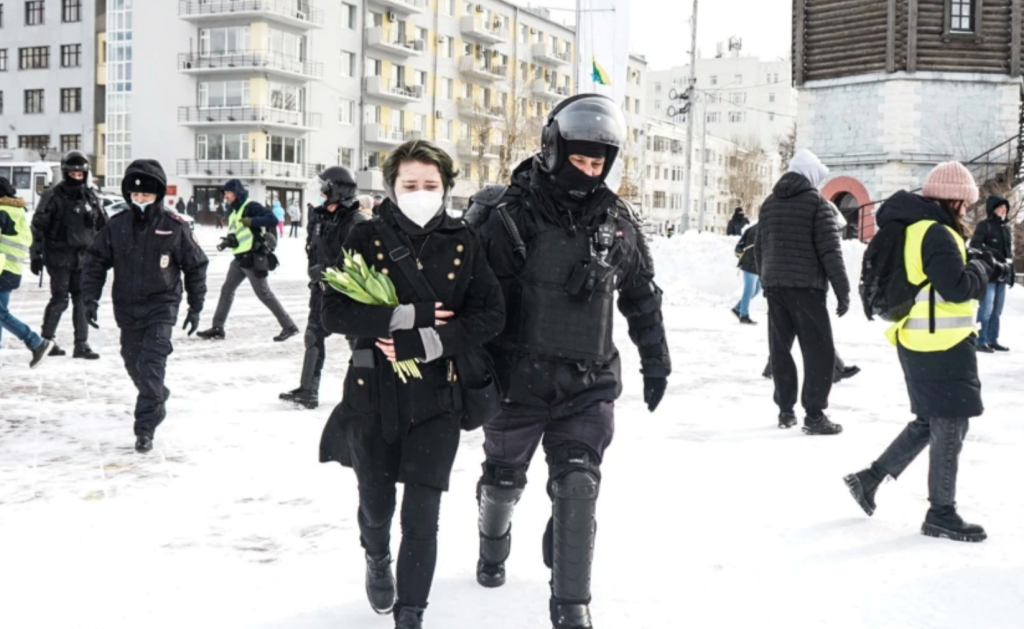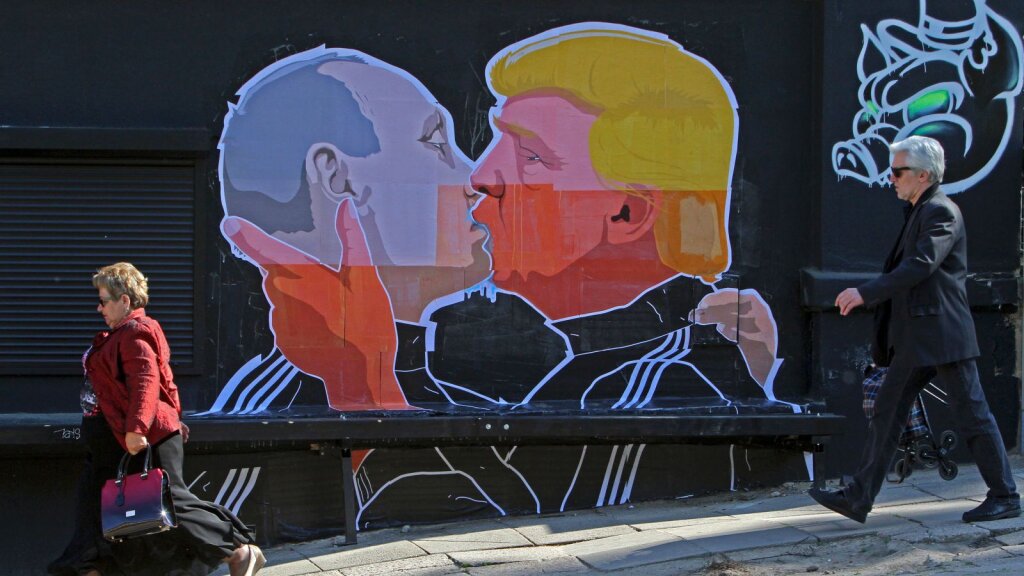This post is part of Chapter 3 of Russia’s Alien Nations: The Secret Identities of Post-Socialism, an ongoing feature on All the Russias. It can also be found at russiasaliennations.org. You can also find all the previous entries here.
An earlier version of part of this chapter was originally featured on plostagainstrussia.org, as Chapter Four. It was not included in the final manuscript.
The ironic reappropriation of alien evil reaches its apotheosis in book three of Maksim Kalashnikov’s and Yuri Krupnov’s four-volume paranoid rant, America versus Russia, to which they give the title The Rage of the Orc (Гнев орка) (2002). Kalashnikov and Krupnov dismiss the “common perception” that the orcs are supposed to represent Muslims: “Remember that the Orcs are ‘Easterners’ in Tolkien’s Western consciousness.”
“The time has come to understand that, for the West, we have always been and will always be—unless the best people in the West change their consciousness—those revolting, savage Orcs, those barbarians for whom the earth has no place.”
After excerpting several pages of descriptions of Orcs from The Lord of the Rings, they simply assert that the connection is obvious:
“Can you feel it? Tolkien’s somnolent mysticism is about us. The hundreds of years of slavery, the pathological, animal cruelty, the disdain for death, and the clinical incapacity for the market and democracy. It’s all there. […] The time has come to understand that, for the West, we have always been and will always be—unless the best people in the West change their consciousness—those revolting, savage Orcs, those barbarians for whom the earth has no place.”
Kalashnikov’s and Krupnov’s miniature Orc manifesto is a breathtaking in the scope of its projections. If Tolkien’s depiction of the Orcs resembles the authors’ imagined slanderous depiction of Russians, then Tolkien is speaking about Russians. When they boldly take on the Orc mantle as an act of subversive appropriation, the objects of their rebellion starts to lose focus: they assume the identity of a famous group of villains in order to spite the authors of this Russophobic calumny, but those authors are the same as the author of the entire book: Kalashnikov and Krupnov. The equation between Russians and Orcs is all but unknown in the West, but it spreads in Russia largely due to the efforts of those who claim to be offended by it. This isn’t just self-colonization; it’s self-orientalizing.
Kalashnikov and Krupnov complete this process when they proclaim that they, like Alexander Blok, are willing to say
“And if not—we have nothing to lose,
And we are capable of betrayal!...
[…]
We,too, can burn buildings, and drive herds into the church,
And fry up the meat of white people!”
Yes, Orc-ism turns into a variation of idiosyncratic Eurasianism through the quotation of Blok’s famous poem “The Scythians” almost in its entirety (a move that is frequently repeated by later “Orcs” on-line). Later in the book, the authors (justly) condemn George W. Bush for his Manichaean world view, yet this is a description that suits The Rage of the Orc even better: any plot structure with two sides, one of which is said to be civilized, and the other barbaric, becomes available as a mode of Russian self-representation. (The authors also compare contemporary Russia to Isaac Asimov’s fallen, now barbaric Galactic Empire from the Foundation series).
If the appeal to literary fantasy might seem to cheapen ideological discourse, then, from my point of view, this is a job well done. While the comparison of a classic poem by Blok to Lord of the Ring fan fiction is troubling on aesthetic grounds, it exposes the fantasy in inherent in ideological claims of primordialism. After all, how much did Alexander Blok know about the actual Scythians when he wrote this poem? How much does anyone? What starts out as popular ethnography ends up as ideological cosplay.
Next: Orcs Online



